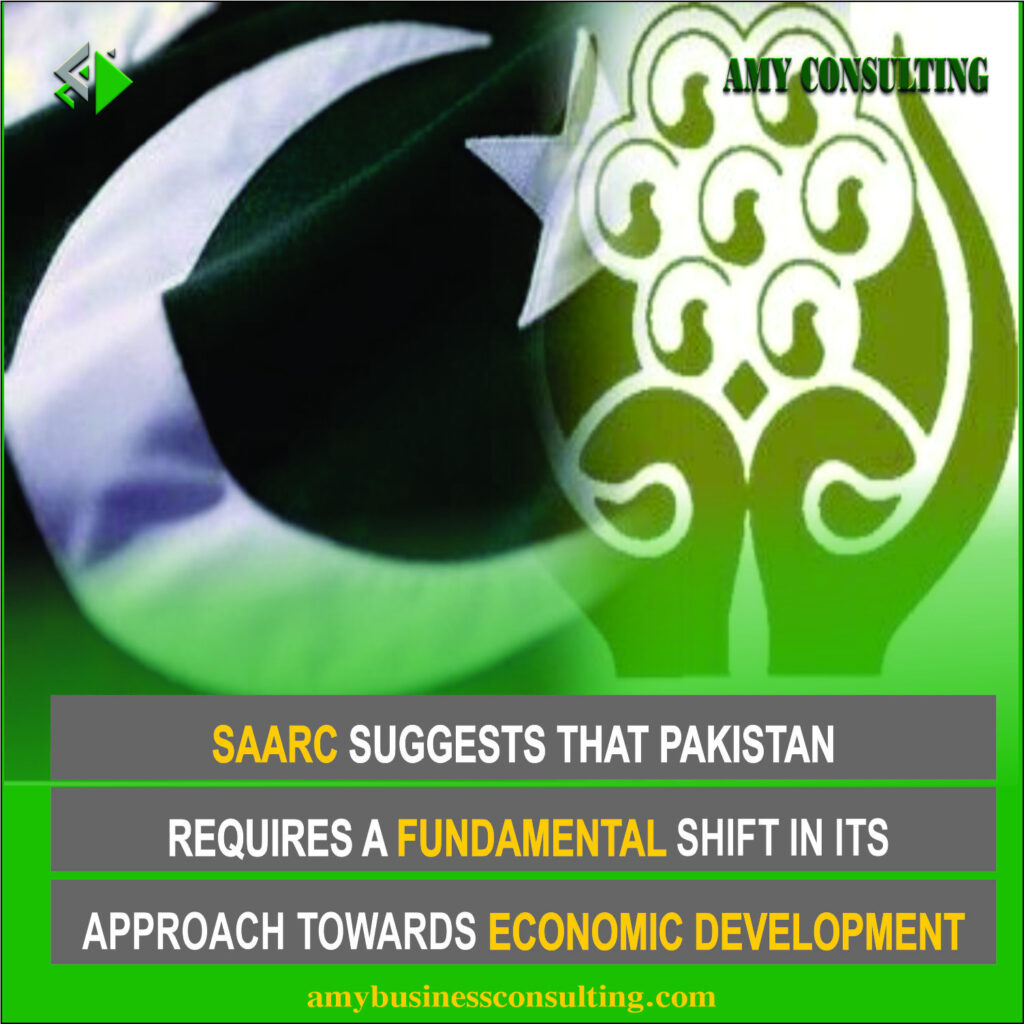SAARC SUGGESTS THAT PAKISTAN REQUIRES A FUNDAMENTAL SHIFT IN ITS APPROACH TOWARDS ECONOMIC DEVELOPMENT

On Sunday, Iftikhar Ali Malik, President of the South Asian Association of Regional Cooperation (SAARC) Chamber of Commerce and Industry, stated that Pakistan requires a fundamental change in its approach to governance and economic development, indicating a need for a paradigm shift.
During a meeting with a group of traders, led by The Falcon International’s CEO Mian Ejaz Ahmad Arain, in Lahore, it was stated that Pakistan is facing several obstacles including political instability, corruption, poverty, and terrorism, according to a press release.
For sustainable stabilization of its economy and to offset the hovering threat of default, Pakistan needs a paradigm shift to strengthen its relations with neighboring countries such as China, India, Afghanistan, and Iran, as well as engage with regional organizations like SAARC and the Economic Cooperation Organization (ECO). He emphasized that economic security is necessary for every state.
Few suggest that Pakistan needs to move away from its traditional mindset and adopt a more progressive and pragmatic approach to tackle its problems. This could include measures such as strengthening democracy, promoting merit-based appointments, investing in education and healthcare, promoting economic growth and job creation, and improving relations with neighbouring countries. He said this in the prevailing quagmire.
Pakistan’s economy is in a dilapidated condition, and for its survival, the country must revisit its priorities to steer out of the prevailing economic crunch, he said, regardless of the reasons.
The philosophy of globalization is now transforming into regional blocks, as 18 countries, including China, Russia, Turkey, Malaysia, and India, have jointly planned future trade using their local currencies, neglecting the US dollar monopoly. This was stated by Iftikhar Ali Malik, an octogenarian veteran trade leader of South Asia.
Our border sharing rival country, which has seen overall exports cross an all-time high mark of $750 billion since gaining independence in 1947, is specifically projected to experience economic growth. However, they are now eyeing a near future goal of achieving $2 trillion.
After independence, Pakistan’s economy was in better shape than India’s until 1970, but it gradually started dwindling due to the absence of wise decisions.
Sharing his rich and diversified life experience, Iftikhar Ali Malik stated that two factors should be considered as the main contributors to the overall growth and stability of the nation. That is why the foreign policy of rival countries has been redesigned to have a parallel influence on both superpowers, whether it be America or China.



